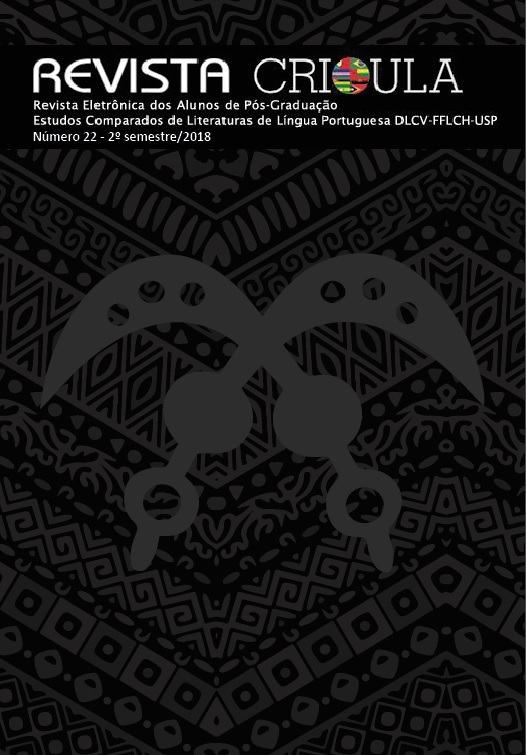We are not "second class Portuguese citizens": the establishment of identities mediated by the memory and the oblivion of the colony
DOI:
https://doi.org/10.11606/issn.1981-7169.crioula.2018.150000Keywords:
memory, oblivion, colonialism, Luanda, GoaAbstract
This article aims to discuss the Portuguese colonies in Africa and in India from the perspective of two Portuguese novels: A casa-comboio (2010), by Raquel Ochoa, e O retorno (2011), by Dulce Maria Cardoso. Here, we will observe, in particular, what is remembered and forgotten about the metropolis and the colony and the role that what is said and what is not said by characters plays to construct specific identities.
Downloads
Download data is not yet available.
Downloads
Published
2018-12-14
Issue
Section
Dossiê: Espaços em movimento (ARTIGOS)
How to Cite
We are not "second class Portuguese citizens": the establishment of identities mediated by the memory and the oblivion of the colony. (2018). Revista Crioula, 1(22), 77-89. https://doi.org/10.11606/issn.1981-7169.crioula.2018.150000


